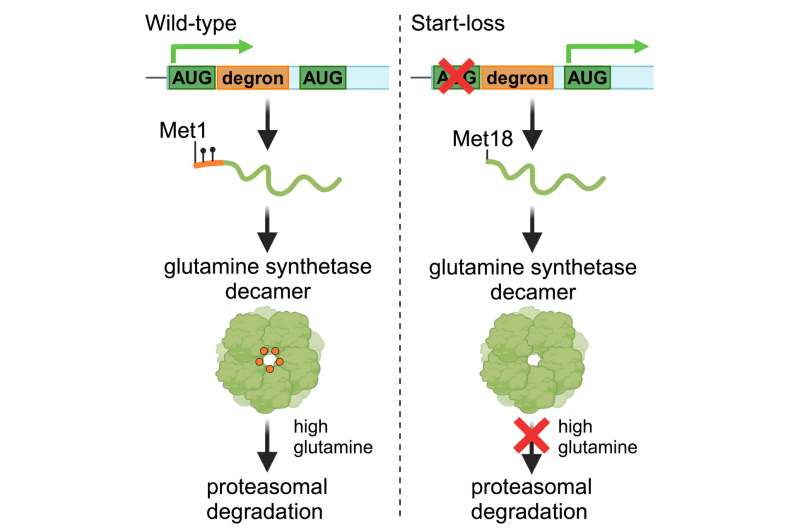This article has been reviewed according to Science X's editorial process and policies. Editors have highlighted the following attributes while ensuring the content's credibility:
fact-checked
peer-reviewed publication
trusted source
proofread
Researchers discover cause of a new rare genetic condition: Glutamine synthetase stabilization disorder

An international team of researchers has discovered what causes an unusual and incredibly rare genetic condition, giving hope to the families with it and others with related disorders.
Led by the University of Otago, with academics from across the U.S., South Africa, U.K. and Europe, the study focused on the role of glutamine in brain development.
By analyzing the effects genetic variants had on brain cells, they found the cause of a new rare condition—glutamine synthetase stabilization disorder—which causes seizures and delayed development. They have just published their findings in The American Journal of Human Genetics.
Lead author Amy Jones, Ph.D. candidate in Otago's Dunedin School of Medicine, says the work started with one child with the condition.
"From there eight other individuals from around the world with disrupted brain development and severe epilepsy had their DNA sequenced and causative genetic variants were found. These variants were all positioned at the start of the same gene, prompting us to ask why," she says.
Molecular experiments revealed the genetic variants had the effect of producing a stabilized enzyme that produces the small molecule glutamine in an unregulated fashion.
"Typically, genetic disorders result from genetic variants that disable a gene, so it was surprising that in this case there was an increase in stability of the enzyme. In some ways these variants can be thought to be taking the handbrake off the enzyme and letting it free wheel in an unregulated fashion.
"This tells us that the production of glutamine needs to be maintained within a very tight specific range during brain development—both too much and too little damages the developing brain," she says.
Senior author Professor Stephen Roberston, Cure Kids Professor of Pediatric Genetics, describes the study as "an excellent example of finely tuned precision medicine.
"All of these children were previously treated according to their symptoms rather than from an understanding of the cause of their condition.
"There are thousands of similar rare disorders, collectively affecting 8% of the general population and many of them are genetic. Defining their causes is the first logical step to formulating treatments specific to them to enable more effective management of the disorders," he says.
Jones says it is important new disorders are discovered and understood.
"Not only does such research provide answers for the individuals and families who participated in this work but also enables the recognition and diagnosis of the same condition in the future.
"This work on a rare disorder also contributes to the collective knowledge of critical components of healthy brain development."
She hopes the findings will enable other individuals who fit the clinical profile, but don't have a diagnosis, to be tested for this disorder.
"It is very likely there are individuals with this disorder that aren't yet diagnosed."
More information: Amy G. Jones et al, Clustered de novo start-loss variants in GLUL result in a developmental and epileptic encephalopathy via stabilization of glutamine synthetase, The American Journal of Human Genetics (2024). DOI: 10.1016/j.ajhg.2024.03.005



















